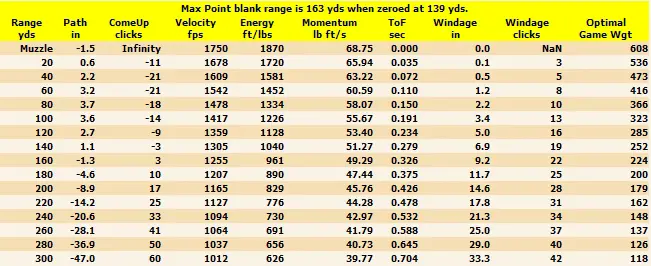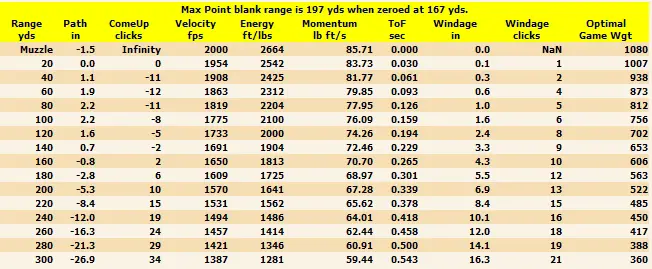


Muzzleloader Versus Slug Gun
There has been a steady stream of questions asking for a comparison between the “modern inline” muzzleloader and the “modern saboted slug gun.” They are both modern firearms, of course, and in many states and areas are the only firearms that can be used for deer hunting.
Using 20 gauge sabots with a stated muzzle velocity of 1900 fps, the actual velocity derived is more in the neighborhood of 1750 fps. The reason for this is that standard slug gun test barrels are 30 inches long, not generally available or desirable, but with a standard 22 inch barrel 1750 fps is what you are likely to get. Ballistic coefficients for 20 gauge saboted slugs run in the .160 to .190 area. I'll use .190 in the comparison assuming a 275 grain projectile.
Inline muzzleloaders generally throw 250 – 300 grain .45 caliber projectiles out of .50 caliber barrels. You can select your own velocity to a large degree, which means 1750 fps so to 2150 fps with Blackhorn 209 propellant using volumetric charges from 80 to 120 grains. 110 grains by volume is what generally has the most appropriate combination of accuracy and manageable recoil for me in my Savage and T/C test rifles. The Parker 300 grain Ballistic Extreme has a published B.C. of .324 with a sectional density of .212. There are more aerodynamic projectiles available, including the Parker Match Hunter, but the 300 grain Ballistic Extreme and 2000 fps (110 – 115 grains Blackhorn 209) is what I'll use for comparison.

Although "rifling" in a shotgun
instead of a rifle makes little sense, today's better slug shotguns with
rifled barrels are vast improvements over the old Foster slug, smoothbore
attempts. Above are representative exterior ballistics with a Savage 220
and the 275 grain 3 inch Federal "Trophy Copper" load #P209
TC.

Above are representative exterior ballistics from a Savage or T/C inline muzzleloader using 110-115 grains or so of Blackhorn 209 by volumetric blackpowder powder measure, a Parker Ballistic Extreme 300 grain projectile and the "short black" MMP sabot. The ballistic superiority of the muzzleloader is obvious. Note the dramatic difference in windage at 200 yards with just a 10 mph crosswind: 14.6 inches for the slug gun compared to 6.9 inches for the muzzleloader.
Copyright 2012 by Randy Wakeman. All Rights Reserved.

Custom Search


